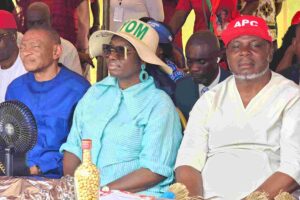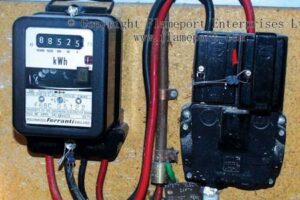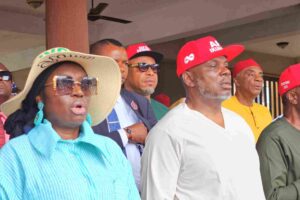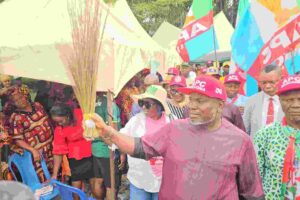
•As Tinubu receives report from c’ttee
By Johnbosco Agbakwuru, ABUJA
PRESIDENT Bola Tinubu yesterday received the report of the High Powered Presidential Committee, HPPC, on Nigeria’s extended continental shelf project, with a commendation to the team of experts who worked hard over the years to advance the project.
The project aims to extend Nigeria’s maritime boundaries in accordance with the United Nations Convention on the Law of the Sea (UNCLOS), 1982.
The President expressed his appreciation in Abuja after listening to technical presentations by Professor Larry Awosika, a marine scientist and member of the committee, and Surveyor Aliyu Omar, Secretary of HPPC.
The experts have been involved in the project since Nigeria’s initial submission to extend its continental shelf to the United Nations Commission on the Limits of the Continental Shelf (CLCS) in 2009.
They informed the President that the UN has approved Nigeria’s submission, granting sovereignty over additional square kilometres of maritime territory.
A statement issued by the Special Adviser to the President on Media and Publicity, Chief Ajuri Ngelale, quoted the President as saying: ‘’When the HPPC briefed former President Muhammadu Buhari in 2022 on the status of the project, the United Nations Commission on the Limits of the Continental Shelf, CLCS, was still considering Nigeria’s submission and having technical interactions with the HPPC.
‘’These interactions and consideration have now culminated in the approval for Nigeria to extend its continental shelf beyond 200M (200 nautical miles).
‘’As it stands now, the area approved for Nigeria is about 16,300 square kilometres, which is about five times the size of Lagos State,” Surveyor Omar told the president.’’
He added that the official notification of the decision was conveyed to Nigeria by the UN Nations Commission on the limits of the Continental Shelf, CLCS, in August 2023, shortly after President Tinubu assumed office.
Omar outlined the available options for Nigeria following the approval: ‘’The first option is to take the area gained and finalize the registration with the UN Secretary-General and close everything, meaning that we are satisfied with what we got. This will take at least one year.
‘’The second option is to take what we have right now, acquire more data, do a support write-up, and make a revised submission as recommended by CLCS for further consideration. This will take another four years. Either way (options), Nigeria will keep what has been approved.”
In his presentation, Professor Awosika explained that the approval came after years of meticulous scientific research on geophysics, geology, geography, and diplomatic efforts, which solidified Nigeria’s legal rights over a vast expanse of seabed and subsoil beyond its traditional territorial waters.
Awosika highlighted the economic potential of the newly acquired territory, which includes hydrocarbons, gas, solid minerals, and a wide variety of sedentary species.
He, however, cautioned against total disclosure of sensitive data acquired during surveys, noting that this will jeopardize confidentiality as Nigeria is expected to monetize the information to recover project expenses.
Responding, the president thanked the experts for their diligence, emphasizing the significance of the achievement for Nigeria’s economic and strategic interests.




